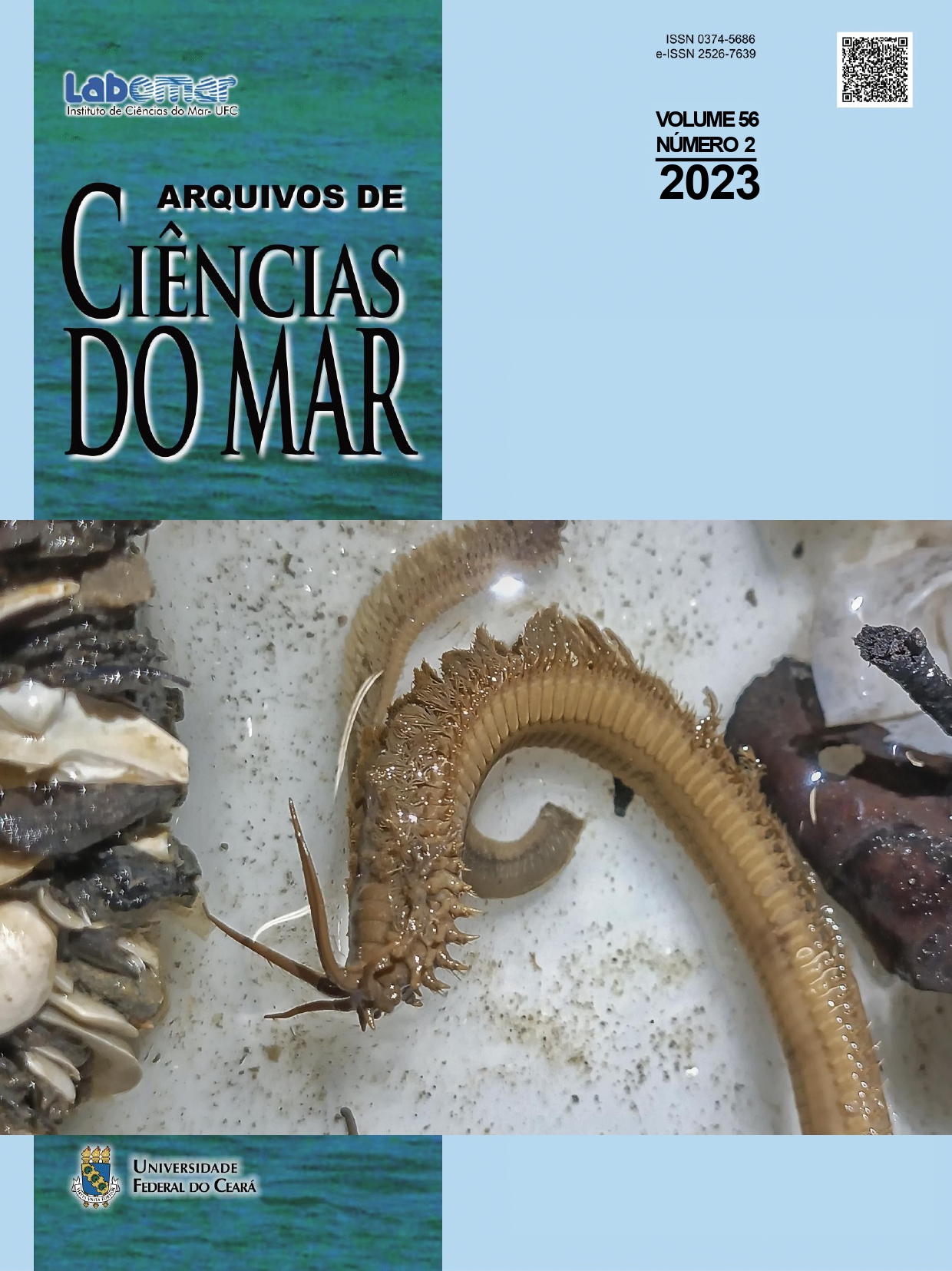PERTURBAÇÕES ANTRÓPICAS E POLUIÇÃO POR LIXO MARINHO NO LITORAL SUL DE ARACAJU: COMPORTAMENTO SOCIAL E AÇÕES PÚBLICAS COMO FATORES DE DEGRADAÇÃO AMBIENTAL
Anthropic disturbances and pollution by marine debris on the south coast of Aracaju: social behavior and public actions as environment degradation factors Elaine Knupp de Brito¹, Jorge Alberto Manso Raimundo da
DOI:
https://doi.org/10.32360/acmar.v56i2.68086Abstract
Irregular waste dumping in marine or terrestrial environment, environmental contamination, rampant urbanization and vehicles traffic on the sand strip represent risk to human beings and marine animals’ life and health. This study aimed to quantify and classify anthropic marine debris stranded on the beach, also identify, qualitatively, other anthropic disturbances
sources on the south coast of Aracaju (Sergipe, Brazil). Results point to an increase of 229.8% in the volume of anthropic solid waste in the sand strip in periods without restrictions on access to the beach related to the pandemic of covid-19, compared to restricted access period; Plastic waste represents 88,6% of all marine garbage and tourism and recreation activities on
the beaches are the main dumping source. Other anthropic impacts related to social behavior could be identified, such as vehicles traffic on the beaches and Inefficient public service actions that contributed to the accumulation of solid waste in the coastal area. All of the mapped records have in common acts of disorder that generated the perception of deterioration and absence of laws, normalizing harmful behaviors of great impact on the degradation of the marine ecosystem.
Keywords: anthropic waste, marine pollution, marine debris, Northeast of Brazil, plastic pollution.
Downloads
Published
Issue
Section
License
Copyright (c) 2023 Arquivos de Ciências do Mar

This work is licensed under a Creative Commons Attribution 4.0 International License.
1. Proposta de Política para Periódicos de Acesso Livre
Autores que publicam nesta revista concordam com os seguintes termos:
- Autores mantém os direitos autorais e concedem à revista o direito de primeira publicação, com o trabalho simultaneamente licenciado sob a Licença Creative Commons Attribution que permite o compartilhamento do trabalho com reconhecimento da autoria e publicação inicial nesta revista.
- Autores têm autorização para assumir contratos adicionais separadamente, para distribuição não-exclusiva da versão do trabalho publicada nesta revista (ex.: publicar em repositório institucional ou como capítulo de livro), com reconhecimento de autoria e publicação inicial nesta revista.
- Autores têm permissão e são estimulados a publicar e distribuir seu trabalho online (ex.: em repositórios institucionais ou na sua página pessoal) a qualquer ponto antes ou durante o processo editorial, já que isso pode gerar alterações produtivas, bem como aumentar o impacto e a citação do trabalho publicado (Veja O Efeito do Acesso Livre).

